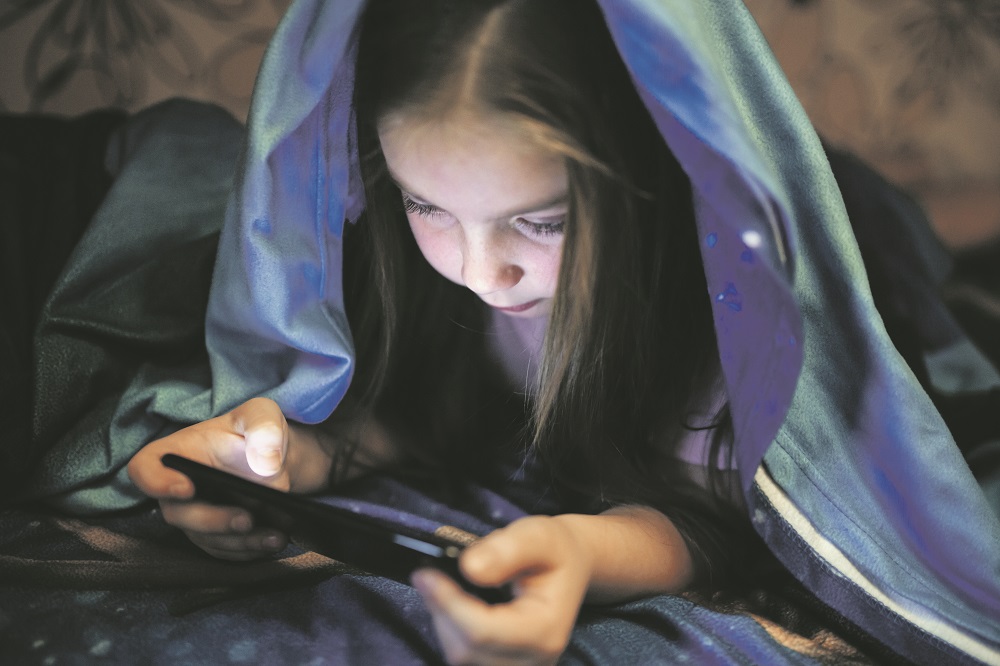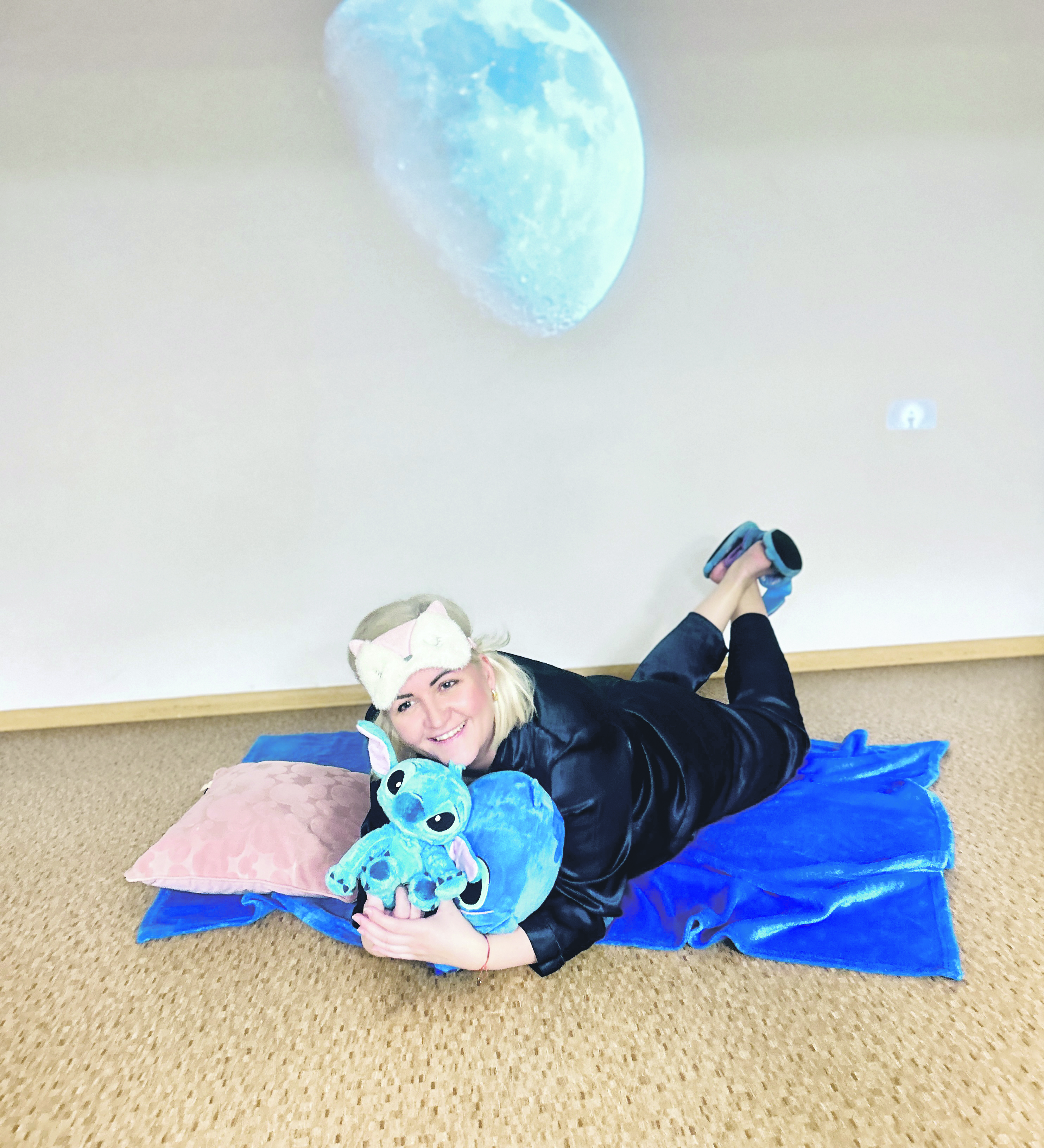Lack of sleep – a new epidemic of children

« Children’s growth hormone secretes the most during deep sleep. This hormone is essential for the growth of bones, muscles and tissues, so that sleep can slow down the child’s growth, » says Sandra Kameliorienė, a public health and lifestyle medicine specialist.
Emphasizing the importance of sleep, she organizes events in educational institutions that children and the whole community invite you to come with pajamas. On this special day, children listen to soothing lullabies, practice meditation at bedtime, and understand how quality sleep can improve their physical and mental health, and remembers healthy sleep habits that help grow and develop.
– How does insufficient sleep affect children’s learning skills and memory?
– Sleep helps to process and absorb the information obtained during the day. Studies show that well -sleepy children are better accumulated, learning faster, solving problems more easily, their better memory, and less common in colds and other infections. Insufficient sleep can lead to greater irritability, mood swings, increased anxiety or even the risk of depression. Sleep deficiency can cause fatigue, reduced endurance and even weight gain due to hormone imbalances. Studies show that sleep deprivation may be associated with hyperactivity, impulsivity and concentration of attention.
Adults feel tired and slow due to sleep deprivation, and children often react the opposite – they can become overly active, restless and difficult to control.
– What healthy sleep habits should parents encourage?
– Sleep habits gained in childhood can have a long -term influence on health and well -being in the future. Regular sleep regimen helps to develop a healthy lifestyle and reduces the risk of having sleep problems in adulthood. Insufficient sleep affects children’s learning abilities and memory, children are impaired, and concentration of attention is reduced – they become more distracted, and more difficult to focus on the information or tasks interpreted by the teacher. Thinking slows down and learning outcomes deteriorate. Constant sleep regime – to lay and raise a child at the same time, even on weekends, reading, warm bath or silent conversation at bedtime helps the child calm down. Of course, the restriction of screens – TV, tablets and phones should be avoided at least 1-2 hours before bed, as blue light suppresses the production of melatonin (sleep hormone). Physical activity is necessary during the day because children who are moving enough to fall asleep faster and sleep deeper. The right sleep environment promotes good sleep.
It is important to mention that lack of sleep in children can occur differently from adults. Adults feel tired and slow due to sleep deprivation, and children often react the opposite – they can become too active, restless and difficult to control. Research shows that there is a strong relationship between sleep problems and symptoms of hyperactivity (ADHD). Children who sleep poorly may be characterized by ADHD signs such as impulsivity, restlessness and attention concentration disorders. For some children with ADHD diagnosis, the symptoms can relieve improved sleep quality. For this reason, it is important to pay attention to children’s sleep habits and consult a specialist in constant difficulties.
Damage: Screens suppress the production of melatonin, which helps to fall asleep naturally, disrupts the internal clock; Active browsing, games or video watching stimulate the brain, making it harder for the child to relax and calm down. / Photo by Freepik.com
– How to create a suitable sleep routine for kids?
– Creating a permanent evening ritual is important for the child to fall asleep and feel safe. About 7 p.m. – Dinner with family, choosing easy digestible, low -fat and sweet food. After eating – quiet activity or lesson preparation. 8 p.m. We start relaxing: a warm bath or shower, a fairy tale or conversation about the day before going to bed with a family member (no screens). And the time of sleep – the lights turn off, the parents wish you a good night. The most important thing is consistency. When children get used to their routine, their body naturally prepares for sleep and becomes easier to fall asleep.
When children get used to their routine, their body naturally prepares for sleep and becomes easier to fall asleep.
– When should a specialist go to a child’s sleep disorders?
– Parents should consult a doctor if they notice that children are constantly falling asleep and sleeping for more than 4 weeks, often wake up at night or sleep restlessly, which interferes with his rest.
Excessive drowsiness during the day, even if you slept enough. Respiratory problems while sleeping (eg loud snoring, shortness of breath, long pause between inhalations), behavioral problems or learning difficulties that may be associated with sleep deprivation. Nightmares, walking through sleep, endangering the child’s safety. A child older than 5 often urinates to bed at night.
– Is lunch sleep for all children and how do you know when to give up?
– Sleep sleep is important for young children, older demand decreases. Children under 3 months sleep around the clock, without a clear rhythm, 4 to 12 months are needed for 2-3 subgroups per day, 1-3 years – one submiculate per day (1-3 hours on average), 3-5 years – some children still need sleep, but the duration is shortened, 5 years of children no longer need lunch. It wakes up too early. Even without lunch, the child feels a fresh all day. If the child still looks tired during the day but is hard to fall asleep in the evening, it is worth shortening lunch or replacing him with a calmer activity (reading, rest in bed).
Format: S. Kapeliorienė invites children and community to come to educational institutions while commemorating the International Sleep Day. / Photo by S. Kapeliorienė’s personal archive
– How do screens and technologies affect children’s sleep before going?
– Screens (phones, tablets, TVs, computers) have a major impact on children’s sleep quality. Inhibits the production of melatonin, screens emit blue light, which disturbing the sleep hormone melatonin, responsible for the natural falling asleep, disrupts the internal clock, constant use of screens in the evening can delay the time of falling asleep, so the child falls asleep later. Active browsing, games or video watching stimulate the brain, making it harder for the child to relax and calm down. Studies show that children who use screens at bedtime sleep shorter and their sleep is anxious. In addition, it causes addiction, the habit of always falling asleep with technology, which makes it difficult to sleep. It is important to turn off all screens at least 1-2 hours before bed, use warm, dim light in the evening instead of bright lamps and screens, book reading, conversations.
Children and adolescents are recommended for sleep duration:
• Newborns (0-3 months) – 14-17 p.m. per day,
• Babies (4-12 months) – 12-16 p.m. (including lunch sleep),
• For young children (1-2 years) – 11-14 hours. (including lunch sleep),
• For preschoolers (3-5 years) – 10-13 hours. (including lunch sleep),
• For elementary (6-12 years) – 9-12 hours,
• Adolescents (13-18 years) – 8-10 p.m.








